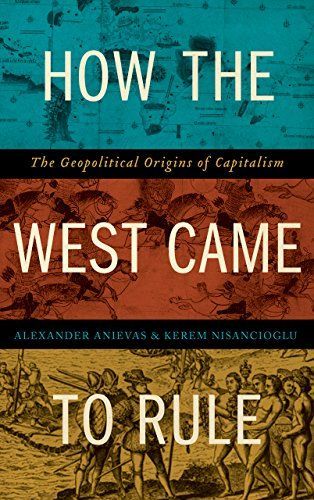
How the West Came to Rule The Geopolitical Origins of Capitalism
Mainstream historical accounts of the development of capitalism describe a process which is fundamentally European - a system that was born in the mills and factories of England or under the guillotines of the French Revolution. Against this orthodoxy, alternative non-Eurocentric theorisations of capitalism's origins remain as timely and important as ever. How the West Came to Rule offers a unique interdisciplinary and international historical account of the origins of capitalism. It argues that contrary to the dominant wisdom, capitalism's origins should not be understood as a development confined to the geographically and culturally sealed borders of Europe, but the outcome of a wider array of global processes in which non-European societies played a decisive role. Through an outline of the uneven histories of Mongolian expansion, New World discoveries, Ottoman-Habsburg rivalry, the development of the Asian colonies and bourgeois revolutions, Alex Anievas and Kerem Nisancioglu provide an account of how these diverse events and processes came together to produce capitalism. Critically engaging with the concept of Eurocentrism across a variety of disciplines, How The West Came to Rule addresses some of the major debates in historical sociology, world history, political economy, postcolonial theory, and international relations and will be of interest to scholars in all these areas.
Highlights
nhu ⋆𐙚₊˚⊹@nhuelle
nhu ⋆𐙚₊˚⊹@nhuelle
nhu ⋆𐙚₊˚⊹@nhuelle
nhu ⋆𐙚₊˚⊹@nhuelle